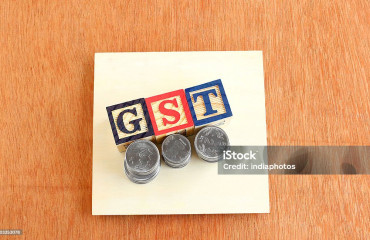
New Delhi: Cautioning tax officials to not kill the goose that lays the golden egg in the process of tax collection, revenue secretary Sanjay Malhotra told a gathering of officials that they need to be careful not to hurt the economy’s interests in the hunt for revenue.

New Delhi: Cautioning tax officials to not kill the goose that lays the golden egg in the process of tax collection, revenue secretary Sanjay Malhotra told a gathering of officials that they need to be careful not to hurt the economy's interests in the hunt for revenue.
"We are here not only for revenue (collection for the exchequer), we are here also for the country's economy," Malhotra said. "And so, if in the process of garnering some small amount of revenue, we are hurting the whole industry and the country's economy, then certainly, that is not the intent."
The revenue secretary was speaking on Wednesday at the 67th foundation day of anti-smuggling agency Directorate of Revenue Intelligence (DRI) in the capital.
The message comes in the backdrop of an explosion of tax notices, especially pertaining to GST (goods and services tax). More than 1,000 GST notices have been sent to businesses across industries such as insurance, aviation, software exporters and online gaming in the weeks to 5 August, leading to tax disputes.
That was the cut-off date for the authorities to enquire about alleged short payment of taxes and wrongful use of tax credits in 2017-18, Mint had reported earlier. The final orders on these notices are expected from GST authorities by February 2025.
Malhotra urged the officials to exercise fair judgement while evaluating cases. "We have to be very careful when we take action in the case of failures of technical nature involving issues of interpretation or classification of product or service, leading to high-pitched tax demand," Malhotra told the gathering.
Also read | Does this tax loophole in the National Pension System help it trump mutual funds?
He added that the CBIC (Central Board of Indirect Taxes and Customs) has rightly come out with a circular, instructing all field officers to check with the policy wing of the Board to check whether an action amounts to tax evasion or is just a technical infringement, Malhotra said.
"CBIC has been advocating this approach and I would take this opportunity to (urge) all the members of customs and DRI present here to keep the interest of the economy before the interest of the revenue," he said.
In August 2022, the CBIC had told field officers that it has noticed in certain cases they had issued summons to top company officials in a routine manner to call for documents and evidence that were anyway available on the GST portal.
The tax authority then instructed the officers to be judicious while exercising their power of issuing summons to senior officials of companies such as chief executive officers, chairman, managing directors and chief financial officers.
Tax experts welcomed the revenue secretary's message.
"This is a very positive development for the industry—it signals the government's intention to support the sector rather than solely focusing on revenue generation," said Saurabh Agarwal, tax partner at audit and consulting firm EY.
Agarwal added that the government's intent is further evidenced by CBIC's approach of providing clarifications and exemptions on various interpretative issues, benefiting sectors like insurance and airlines, among others.
Also read | With incentives and deductions, middle-income earners' share in India's tax kitty shrinks
Abhishek A. Rastogi, founder of law firm Rastogi Chambers, said that by fostering a culture of voluntary compliance and reducing the adversarial nature of tax administration, the government hopes to achieve its dual goals of maximizing revenue and supporting economic growth.
Keeping watch
Malhotra's comments indicate that the top functionaries in the government are keeping a close eye on how tax is administered on the ground and how it impacts business sentiment.
The revenue secretary's comments are significant given that businesses have often expressed concern over high-pitched tax assessments leading to tax demands going beyond businesses' ability to pay, for example, in the case of the online money gaming industry.
Online gaming platforms and casinos were sent show-cause notices to reclaim over ₹1 trillion in goods and services tax (GST) for FY18, Mint had reported in October last year. The tax dispute over taxation of online money gaming sector for the period up to end of September 2023 is currently pending in the Supreme Court.
Public data shows that in FY23, the tax administration detected over 15,500 cases of alleged GST evasion involving ₹1.3 trillion, of which it recovered a little more than ₹33,000 crore.
Tax numbers
To be sure, India has set an indirect tax collection target of ₹16.2 trillion for the current financial year, estimating a 9.4% growth over the collections made in the last financial year. About 55% of this year's target has been achieved by the end of October, according to the Controller General of Accounts (CGA) of India.
In FY24, the government had to revise its indirect tax revenue collection target to ₹14.8 trillion when it presented accounts in February this year as excise and customs duty collections were lower than what was estimated at the beginning of the financial year.
